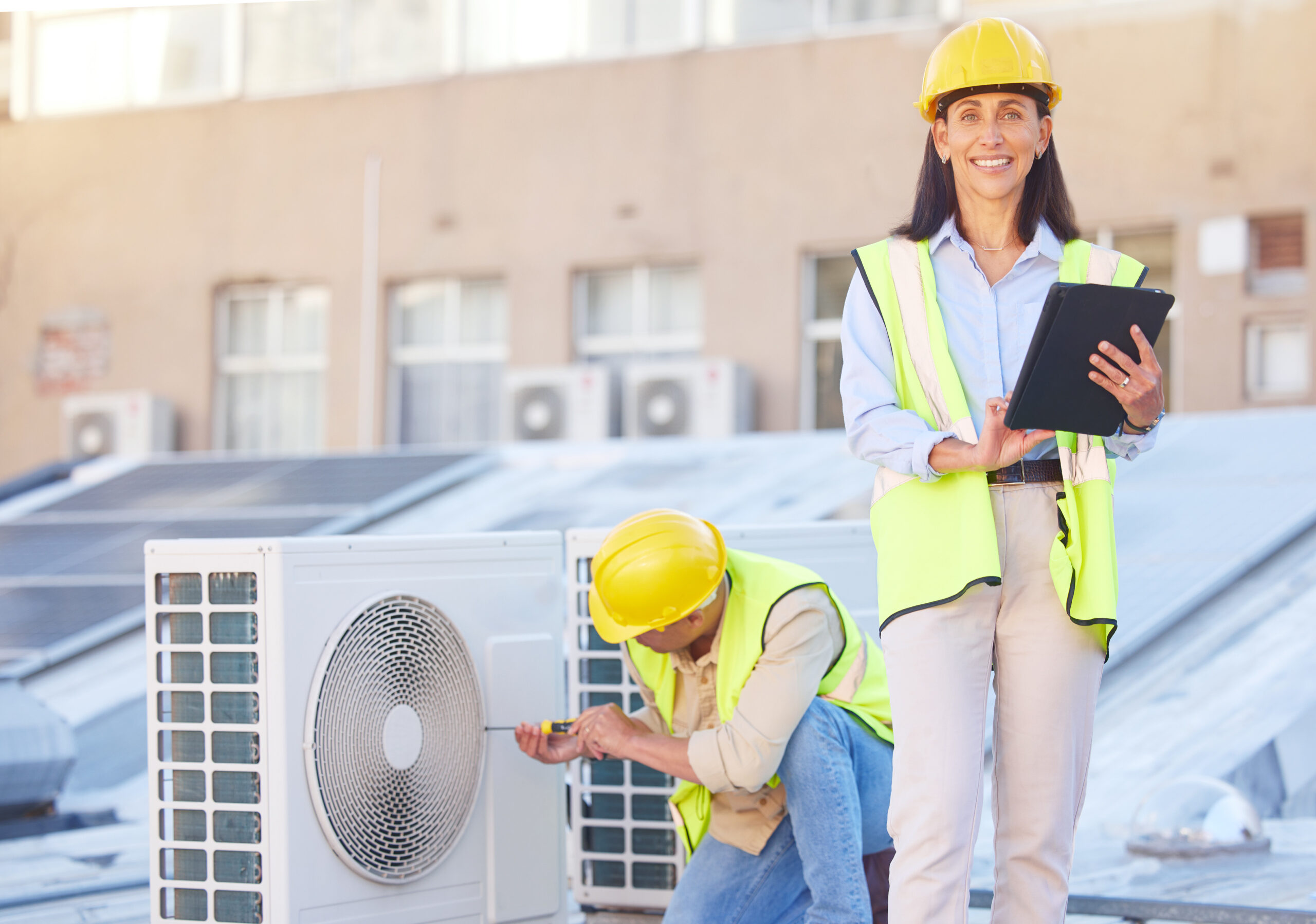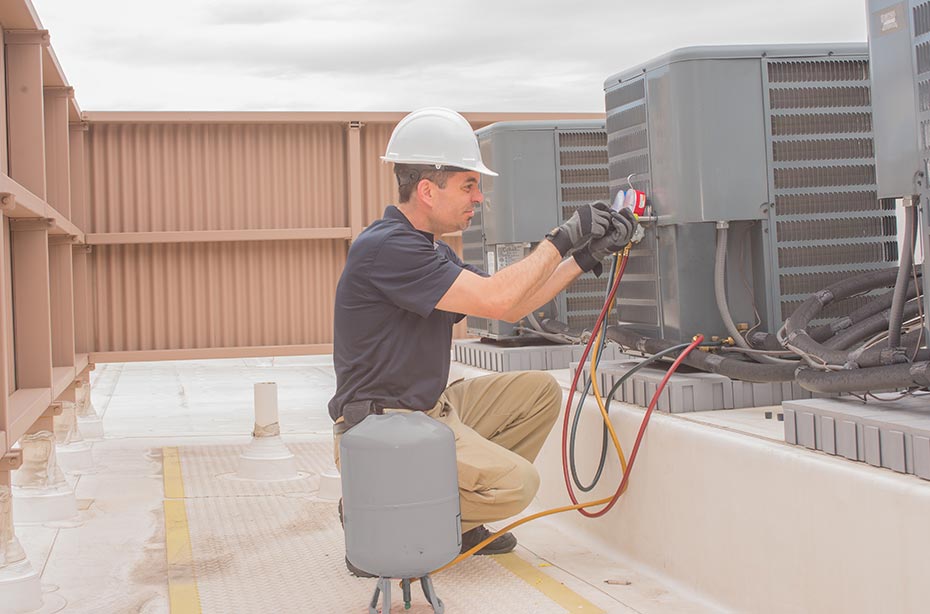Boost Your Home’s Efficiency with Routine heat pump service
Boost Your Home’s Efficiency with Routine heat pump service
Blog Article
Selecting Between a Heatpump and Furnace: Key Considerations for Your A/c Requirements
When evaluating heating options for a/c needs, the decision in between a heatpump and a heater can be complicated. Each system provides distinctive advantages customized to particular environments and energy efficiency goals. Comprehending these distinctions is vital for making an enlightened choice. Secret factors such as setup expenses and ecological impact additionally make complex the selection procedure. Which alternative genuinely straightens with one's convenience and sustainability choices? The adhering to sections will explore these considerations thoroughly.
Understanding Heat Pumps: How They Work and Their Advantages
While numerous property owners consider numerous heating alternatives, understanding how heatpump function and their advantages can substantially influence their choice. Warmth pumps run by moving heat as opposed to generating it. In the winter months, they draw out warmth from the outdoors air or ground and move it inside, while in the summer season, they reverse this process, cooling down the home by removing warm outside. This twin performance makes them flexible for year-round environment control.One of the primary advantages of warm pumps is their power efficiency. They make use of significantly less power contrasted to traditional heater, potentially resulting in lower utility bills (ductless mini splits). In addition, heat pumps have a smaller sized carbon footprint, making them an eco pleasant option. They additionally call for much less maintenance than standard systems, adding to long-lasting cost financial savings. On the whole, understanding the mechanics and advantages of heatpump can assist house owners make informed decisions regarding their heating and cooling down demands
Discovering Heaters: Kinds, Operation, and Benefits
Furnaces are available in various kinds, including gas, electric, and oil versions, each with distinctive functional systems. Recognizing these differences is essential, as they impact performance and home heating efficiency. In addition, heaters use numerous advantages, such as regular heat outcome and reliability in cooler climates.
Kinds of Heaters
Furnace can differ substantially in design and procedure, with heating systems being a prominent choice amongst house owners. There are several kinds of heaters, each using various fuel resources and modern technologies. Gas furnaces are usual, leveraging natural gas to generate heat efficiently. Electric heaters, on the other hand, make use of electric resistance to create heat, usually favored for their simple installment. Oil heating systems, while much less typical, work in areas with restricted gas access (heat pump replacement ooltewah tn). Furthermore, condensing heaters optimize energy performance by reusing and recording exhaust gases. Each type operates via a system of heat exchangers and ductwork to distribute cozy air throughout a home. Understanding the distinctions in between these furnace types is crucial for informed a/c choices
Benefits of Heating systems
For home owners seeking reputable heat throughout cool months, the advantages of heating systems are substantial. Furnaces offer regular home heating, making certain even temperatures throughout the home. They are specifically reliable in extreme cool, commonly outshining warm pumps in freezing conditions. Numerous kinds, consisting of gas, electrical, and oil heaters, supply adaptability to meet diverse needs and preferences.Furnaces also tend to have lower initial installation costs compared to heat pumps, making them a more available alternative for several. Their durable style contributes to a longer lifespan, with many units lasting over 15 years with proper upkeep. In addition, modern-day heating systems are frequently geared up with advanced technology for improved performance, which can bring about lowered power expenses. In general, furnaces continue to be a reputable selection for effective home heating.

Energy Efficiency: Comparing Warmth Pumps and Furnaces
When contrasting power effectiveness between heatpump and heating systems, the Seasonal Power Efficiency Ratio (SEER) plays a crucial role in figuring out efficiency. Additionally, a functional price analysis reveals the lasting monetary implications of each system. Understanding these elements can guide home owners in making informed decisions concerning their home heating solutions.
Seasonal Energy Performance Ratio
Energy effectiveness plays a crucial role in the decision-making procedure between heatpump and furnaces, especially when thinking about the Seasonal Energy Effectiveness Ratio (SEER) This metric steps the cooling effectiveness of heatpump over an entire cooling season, supplying a standardized method to evaluate efficiency. Higher SEER scores indicate higher power effectiveness, translating to lower power intake and minimized energy bills. On the other hand, furnaces are usually examined utilizing the Annual Gas Use Performance (AFUE) ranking, which shows heating performance. When contrasting these two systems, homeowners should prioritize SEER ratings for heatpump, as they straight effect total energy financial savings and ecological sustainability. A thorough understanding of SEER can especially influence the long-term satisfaction and cost-effectiveness of the picked a/c service.
Functional Expense Evaluation
Comprehending the operational expenses related to heatpump and furnaces is essential for house owners evaluating their options. Heatpump commonly provide higher energy performance, converting electrical energy into heat with minimal waste. This results in reduced monthly energy costs, particularly in moderate climates. Conversely, typical furnaces, especially gas models, may have reduced upfront expenses yet can incur higher functional expenditures in time because of sustain prices and effectiveness ratings.Moreover, heatpump can function as both heating and cooling down systems, possibly reducing the requirement for different a/c systems. While preliminary financial investments for heatpump might be higher, their lasting savings in energy effectiveness can make them an extra cost-effective option for lots of houses. Careful analysis of local energy prices is important to determine the most effective alternative.
Setup Costs: What to Expect for Each Heater
Installation costs for heater can vary considerably between warm pumps and heating systems, affecting house owners' choices. Warmth pumps usually have greater in advance setup expenses, usually varying from $3,500 to $8,000, depending upon the system size and intricacy of installment. This consists of the outside system, interior handling system, and required ductwork modifications. Alternatively, furnaces have a tendency to have lower preliminary prices, balancing between $2,500 and $6,000, which can be appealing for budget-conscious property owners. Nevertheless, setup costs can increase if comprehensive ductwork is required.Moreover, the option of fuel type for heaters-- gas, lp, or electrical-- can additionally influence setup expenses. While heatpump use energy performance, their preliminary investment might discourage some buyers. Inevitably, examining installation prices together with long-term financial savings and effectiveness will aid home owners in making notified choices about their heater.
Climate Factors To Consider: Which System Does Better in Your Location
Exactly how do climate problems affect the effectiveness of heating unit? The efficiency of warmth pumps and furnaces can vary significantly depending on the neighborhood environment. In modest environments, heat pumps excel by effectively transferring warmth from the outdoors air, making them an energy-saving option. However, their effectiveness decreases in extremely chilly temperatures, where they may battle to draw out adequate warmth. On the other hand, heaters, especially gas designs, offer trustworthy and regular heat no matter exterior conditions, making them preferable in cooler regions.In areas that experience milder winters months, warm pumps can operate successfully year-round, giving both heating and cooling. On the other hand, regions with rough winters commonly take advantage of the robustness of furnaces. Inevitably, understanding the regional climate is necessary when choosing between a heatpump and a furnace, as it directly influences their operational effectiveness and general efficiency.
Maintenance Needs: Long-Term Take Care Of Warm Pumps vs. Furnaces
While both warm pumps and heaters need routine maintenance to assure peak performance, their details requirements and treatment routines differ considerably. Heating systems usually need much less regular focus, with annual assessments sufficing to examine for gas leakages, clean filters, and examine general performance. Their simpler layout frequently enables straightforward repairs.In contrast, warmth pumps necessitate biannual maintenance due to their double function in heating and cooling. This includes cleansing coils, inspecting cooling agent degrees, and making sure that both the exterior and interior units operate at their finest. In addition, warmth pump upkeep usually entails more intricate elements, making expert servicing essential.Neglecting upkeep can result in diminished performance and boosted power prices for both systems. Inevitably, house owners need to think about these lasting care demands when selecting between a heatpump and a heater, as proactive upkeep can prolong the life-span and efficiency of either system substantially.
Environmental Impact: Choosing a Lasting Heating Option
The environmental impact of you can check here home heating systems is an essential evaluation for property owners seeking lasting choices. Heatpump are typically more energy-efficient than standard heaters, as they transfer warmth instead than create it, substantially decreasing carbon discharges. By making use of eco-friendly power sources, such as air-source or geothermal heatpump, home owners can even more minimize their ecological footprint.On the other hand, gas furnaces discharge greenhouse gases and add to air pollution, though they frequently supply greater warm output. Innovations in modern technology have actually led to the growth of high-efficiency furnaces that minimize emissions.Ultimately, picking a home heating system involves considering performance versus environmental effect. Property owners are motivated to review neighborhood power sources and rewards for sustainable systems, guaranteeing an option that aligns with both personal convenience and ecological duty. The decision affects not just prompt comfort yet additionally long-lasting sustainability and environmental health and wellness.
Frequently Asked Questions
For How Long Do Warm Pumps and Furnaces Usually Last?
The lifespan of heat pumps usually ranges from 15 to twenty years, while heating systems can last in between 15 to three decades. Regular maintenance significantly influences their long life and effectiveness in providing heating remedies.
Can I Utilize a Heatpump in Incredibly Cold Climates?
Heatpump can operate in extremely chilly environments, but their efficiency decreases as temperatures decrease. In such problems, supplemental heating resources might be essential to maintain comfy indoor temperature levels and ensure peak performance.

What Is the Sound Degree of Warm Pumps Versus Furnaces?
The sound degrees of heatpump and heating systems official source differ substantially. Normally, heatpump run more silently than typical heaters, making them more effective for those conscious seem, while heaters may create louder operational sounds throughout home heating cycles.
Are Warmth Pumps Suitable for Both Heating and Air conditioning?
Heatpump are indeed appropriate for both cooling and heating (furnace replacement). They function by moving warmth, providing effective temperature level control year-round, making them a flexible choice for property owners looking for an all-in-one a/c remedy
What Dimension Heater Do I Required for My Home?
Identifying the appropriate size furnace for a home needs examining elements such as square footage, insulation high quality, local environment, and the home's format. Consulting a professional can guarantee a precise evaluation and ideal convenience. Warmth pumps usually offer greater energy effectiveness, converting electric energy into heat with marginal waste. In moderate climates, heat pumps stand out by effectively moving warmth from the outdoors air, making them an energy-saving alternative. Alternatively, heaters, especially gas versions, offer consistent and dependable warm regardless of outdoor problems, making them preferable in cooler regions.In locations that experience milder winters months, warm pumps can run effectively year-round, giving both heating and air conditioning. Heat pumps are generally a lot more energy-efficient than conventional heating systems, as they transfer heat rather than produce it, considerably lowering carbon exhausts. By using renewable power resources, such as geothermal or air-source heat pumps, property owners can even more decrease their eco-friendly footprint.On the other hand, natural gas heating systems release greenhouse gases and add to air contamination, click here for more info though they typically supply greater warm result.
Report this page